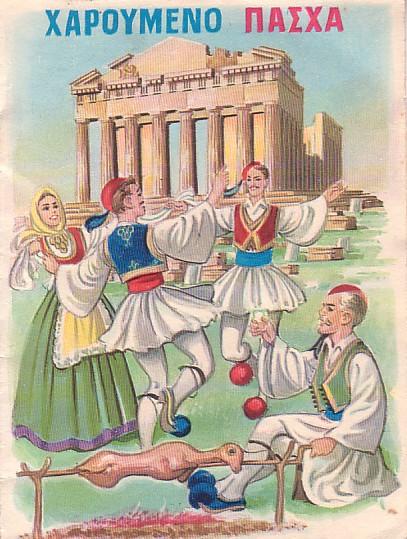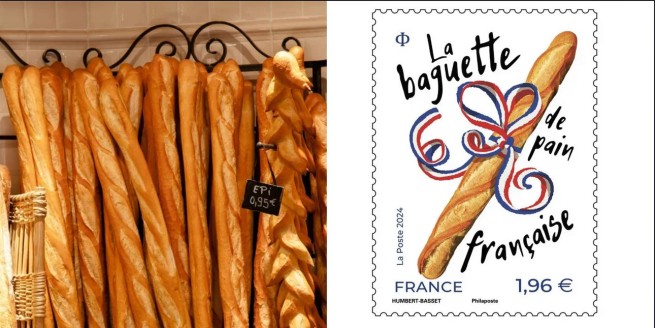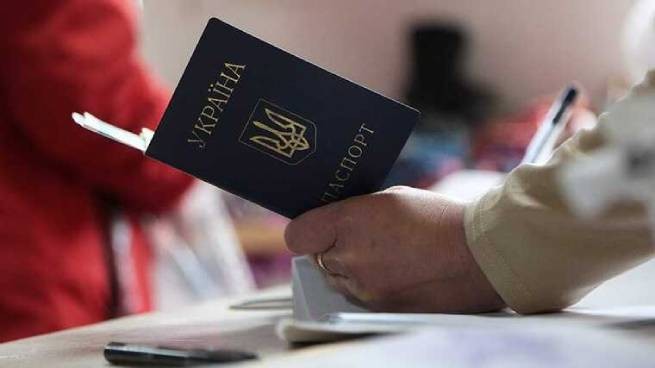The editors of the Russian Athens website congratulate all our readers on the holiday . Easter in Greece is a noisy, interesting holiday full of joy and love for one's neighbor.
For the Greeks, this is not only a religious, but also a secular celebration, the idea of which is based on the desire for resurrection, awakening, and light.
Therefore, in Greece it is customary to celebrate Easter with fireworks, fiery dances, pleasant gifts, lamb on a spit and wonderful homemade cakes, as well as purely national traditions
The country's population is 97% Orthodox Christians, pious, respecting traditions, and therefore religious rituals in Greece are strong and colorful.
Joy of Resurrection

The Greek Church generally places emphasis not on the suffering of Christ, but on the joy of His resurrection.
The peculiarity of Easter in Greek is noticeable already from the resurrection, which we call Palm, and in Greece – Palm, in honor of the branch that was in the hands of the Lord upon entering Jerusalem.
The priest, according to tradition, distributes to the parishioners crosses made of palm leaves and myrtle stems, kept by the Greeks behind the icons throughout the next year.
Then Holy Week begins, during which it is customary to go to church every day. During Holy Week, Greek housewives prepare for the holiday: they bake “koulourakia” shortbread cookies in the form of bagels, paint Easter eggs red, thoroughly clean the house, and buy gifts. Another traditional Easter dish in Greece is Magiritsa soup, which is made from sheep's offal with the addition of beaten eggs and lemon juice.
On Good Friday, government services stop working, flags are lowered at half-mast: everyone is preparing for the religious procession. The most serious sin for a Greek believer on this day is household work with a hammer and nails, symbolizing the crucifixion of Christ.
And, on Holy Saturday, according to tradition, to Athens on a special flight from Jerusalem. The main symbol of Easter is celebrated with all pomp and ceremony. A guard of honor and a procession through the streets are required.
Next, the Holy Fire will be delivered to the Cathedral of the Transfiguration of the Lord in Athens, and small lanterns in which a particle of it lives will be transported throughout Greece and delivered to the most distant Greek islands.
The solemn church service for Easter in Greece is also based on the celebration of the Holy Fire. The pitch darkness is gradually illuminated by the lights of candles, lit from one, until the Light wins the final victory.
Easter night in Greece there is little comparable in its colorfulness and friendly atmosphere. United by one common joy, people do not fraternize in the streets. Everyone, young and old, dresses in the most formal clothes, women have a new hairstyle on their heads, children have elegant candles decorated with fairy-tale figures, and some even have candles with the symbols of their favorite football club.
The Greeks use it as an Easter cake. Tsoureki. The custom of “clinking glasses” with colored eggs is also present here, and for a long time the hard-boiled eggs will wander from house to house as Easter gifts until they finally find their final refuge…
Traditions are signs…
In Greece, it is customary to draw a cross on the door with the flame of a candle before entering a home. The Greeks believe that this will protect the family from misfortune.
In Greece, there is a tradition according to which the procession of the Cross goes from the cathedral to the central square of the city for one of the climaxes of the action.
In some places, believers burn the figure of Judas.
Elsewhere in the country, the reading of the Gospel story about the resurrection of the Savior in church is accompanied by extreme noise: parishioners knock on wooden stairs and benches with sticks at the words about an earthquake in Jerusalem.
Easter feast in Greek…
On Bright Sunday, lamb is traditionally roasted in courtyards and on lawns.
In addition, Easter is a wonderful occasion to uncork wine from last year's harvest.
In Thessaloniki, for many years now, on this day, municipal holiday tables have been set according to custom: hundreds of lambs are roasted on a spit, eggs, wine and sweet chureki are distributed to local residents and guests of the city.
In Greece, on Easter, an indispensable part of the holiday is Greek songs and dances, which continue until the morning and do not subside throughout Bright Week.
Easter in Greece is especially loved by children. And this is not surprising. After all, the Easter holidays of Greek schoolchildren last for two weeks, and all children in Greece always receive gifts from their godfathers and mothers on Easter (in Greece, a name is officially assigned only after the child’s baptism, but in the last 25 years the Greeks can register a child’s name in municipality, but only 10% of the population resorts to civil acts).







More Stories
The right hand of John the Russian found
Vices and habits of the imperial couple
Archons of Phanar will discuss religious freedom in Athens